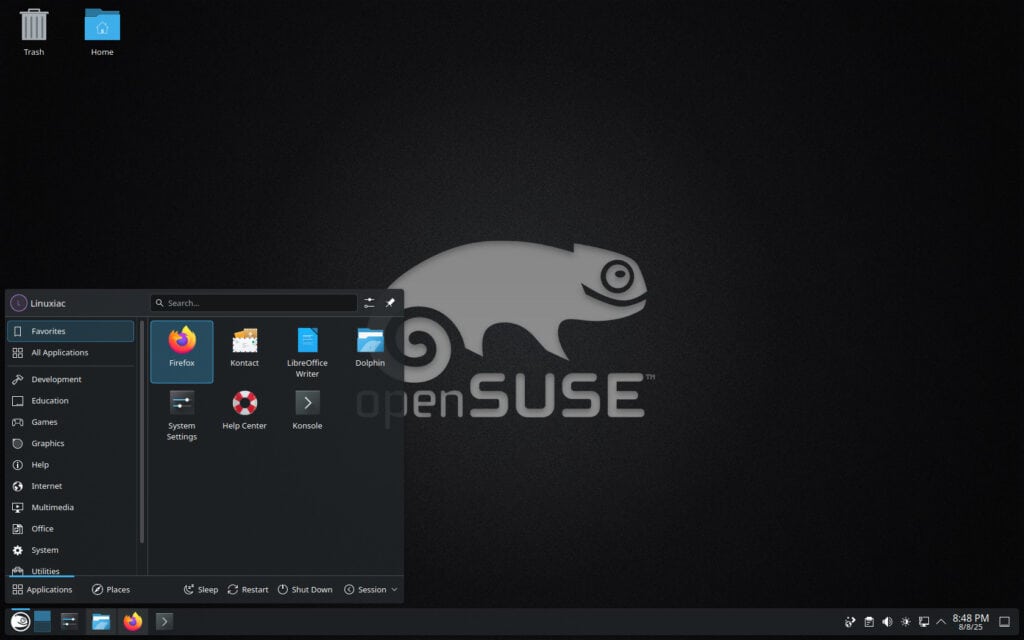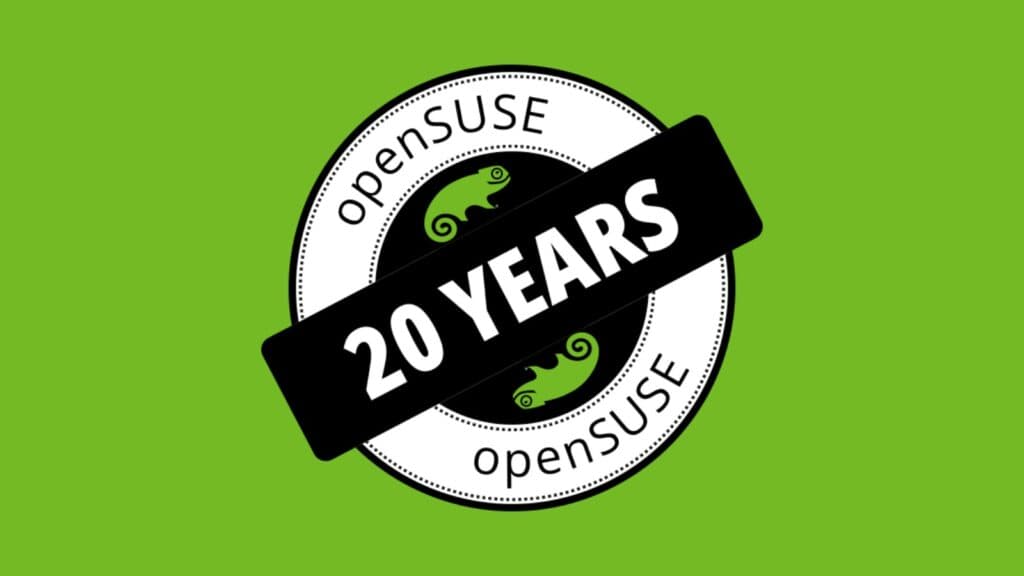openSUSE is a name every Linux fan recognizes today, but it’s worth taking a quick trip down memory lane—especially for the younger crowd.
Back on August 3, 2005, while SUSE was still under Novell’s wing (Novell had acquired the company in 2003), a post appeared announcing something new: Novell’s plan to launch a community-driven Linux distribution based on SUSE, and it would be called OpenSuSE.
Novell will be launching a community-based Linux distribution, OpenSuSE, at next week’s LinuxWorld in San Francisco, according to sources close to the company.
Following in the footsteps of Red Hat Inc. with its successful Fedora Project
Linux distribution, Novell Inc. will be opening up its Linux development
efforts with OpenSuSE, sources said.A site, opensuse.org, has already been set up for the project by Novell under
the name of Batman’s alter ego, Bruce Wayne. The site, however, is not open
for business yet.
A week later, on August 10 (since the project officially kicked off a day earlier, on August 9, 2005), it was publicly confirmed and made official with this announcement:
Sorry for the short announcement. We have now launched openSUSE and released SUSE Linux 10.0 OSS Beta1 to the public.
Twenty years later, the cute green chameleon isn’t just surviving — it’s a Linux icon. In a landscape where countless projects have launched with excitement only to fade away, openSUSE has not only endured but flourished.

Over these two decades, it’s earned a reputation for being rock-solid, reliable, and secure, winning the trust of everyone from home users tinkering with their first desktop to enterprises running mission-critical systems. Alongside Debian, it shines as one of the brightest stars — not just among general-purpose distros, but in the entire Linux ecosystem.
I say this with no personal bias—openSUSE has earned its place as one of the top picks for Linux enthusiasts. It’s stood the test of time, avoiding sudden and unexpected moves, and consistently delivering stable, reliable releases. And honestly, at the end of the day, that’s what really matters.
To date, alongside its two flagship offerings—the rock-solid Leap for those who prioritize stability and the rolling-release Tumbleweed (plus the new addition – Slowroll) for those eager to stay on the cutting edge—openSUSE has introduced MicroOS, an immutable and transactional system primarily tailored for edge computing, which means openSUSE now covers all the major bases: business, everyday users, and the cloud.
But that’s not the focus of this piece. Today is about expressing genuine gratitude to everyone who has contributed to the openSUSE project over the past two decades. You’ve delivered one of the most reliable and well-crafted Linux distributions available, while steadily reinforcing openSUSE’s reputation as a leader in its field.
With the final stable release of Leap 16 expected in October—now in its release candidate stage—the excitement is already building. Until then, it’s worth saying this: only a handful of Linux distributions are truly timeless, and openSUSE is firmly among them.
Happy 20th anniversary, openSUSE—and here’s to many more.

The origins of SUSE Linux goes all the way back to September 1992 in Noremberg, Germany when Roland Dyroff, Burchard Steinbild, Hubert Mantel and Thomas Fehr founded the Software and Systems Development Corporation. The name alludes to the inventor of the modern computer, Konrad Zuse whose greatest achievement was the world’s first programmable computer; the functional program-controlled Turing-complete Z3 became operational in May 1941. In spite of those who say IBM invented the first computer it was actually Zuse who was the brains behind it.
https://en.wikipedia.org/wiki/Konrad_Zuse
So, in reality, SUSE is about 33 years old come September 2025!
Suse has existed since 1993. Its previous version was based on Slackware, since 1995 it has been based on Jurix (which she was discontinued in late 1996/early 1997).
Suse, which is 32 years old today, has always been available for free download and without limitations. I used their distribution at the time, after the bankruptcy of Mandrake Linux, aka Mandriva. And from my memory, they were the first to introduce 3D desktop effects around 2005.
Open Suse is simply a rolling release of Suse Enterprise, it is developed and maintained by Suse.
It prefigures the software releases of Suse Enterprise, in the same way that Redhat uses Fedora for this purpose.
The idea is that the Fedora & Open Suse user community works voluntarily for the developers of these operating systems, reporting bugs and other issues they encounter… and then the fruits of their labor are integrated into Redhat and Suse Enterprise.
In my opinion, this isn’t really an anniversary to celebrate… even for fans of this OS.
Regards.
https://upload.wikimedia.org/wikipedia/commons/1/1b/Linux_Distribution_Timeline.svg
I think you got a couple of thing backwards:
openSUSE is not a rolling release distro precisely.
There’s openSUSE Leap which is not a testbed for commercial SUSE but a community clone of it. Think of it like an official Alma Linux for RHEL.
Then there’s Tumlbeweed and Slowroll which are rolling but I don’t think they have much influence on the development of SUSE.
On the other hand, I always “knew” that the original S.u.S.E. was based on Slackware + RPM but I don’t remember ever hearing about Jurix, that’s a nice tip!
Jurix:
https://en.wikipedia.org/wiki/Jurix
Absolutely agree! openSUSE is great – even a bit undervalued in some ways. Congrats, openSUSE!